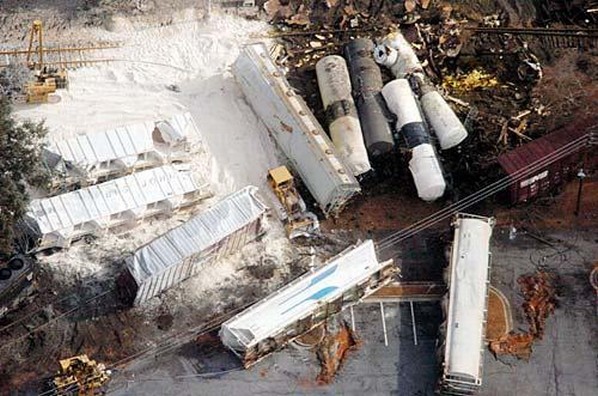
A chemical emergency can happen when gasses, liquids or solid materials that can poison people have been released. This kind of emergency can happen by accident or on purpose in a terrorist attack.
Some chemicals are very dangerous and make you sick right away. Other chemicals are less dangerous and may not hurt you. Chemicals that are liquids or gasses are usually more dangerous than chemicals that are solid materials.
Protecting yourself and your family before, during and after a chemical emergency can help keep you safe and make sure you don’t get sick.
Follow these simple steps:
![]()
BEFORE A CHEMICAL EMERGENCY HAPPENS:
-
Be sure you have your emergency supply kit ready.
-
Pick a room in the middle of your home or building for shelter. Rooms without windows, on the highest level are the best.
![]()
WHEN A CHEMICAL EMERGENCY HAPPENS:
-
Close all your doors and windows.
-
If you have a fireplace, close the damper.
-
Turn off all fans, air conditioners, and forced-air heating units that bring in fresh air from the outside.
-
If you are told to stay where you are, you should:
-
Move to an inside room and bring your emergency supply kit.
-
Check local TV and radio stations and the Internet for official news, information and instructions.
-
-
You may also consider sealing the room (see Sealing the Room)
![]()
AFTER A CHEMICAL EMERGENCY:
-
Wash with soap and water right away if you think you were near a chemical.
-
Change out of your clothing.
-
Get medical help if you feel sick.
If a chemical emergency happens, officials may not be able to tell you what to do right away. It might take time for them to figure out exactly what the illness is, how it should be treated, and who is in danger. You should check local TV and radio stations and the Internet for official news following the emergency so you know:
-
How dangerous it is.
-
What illness you might get.
- Where to get medicines if you have to.
- Where to go for medical help or shelter.


